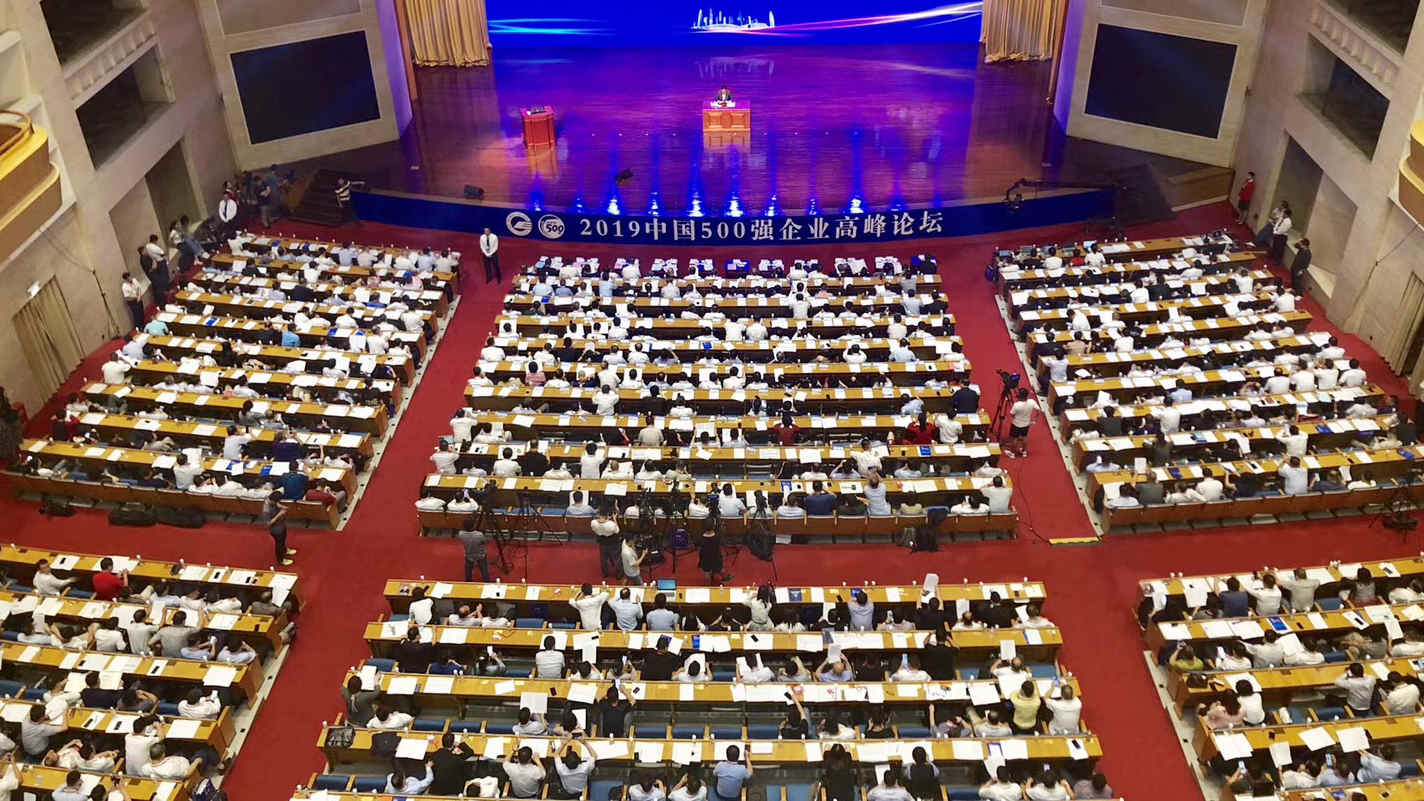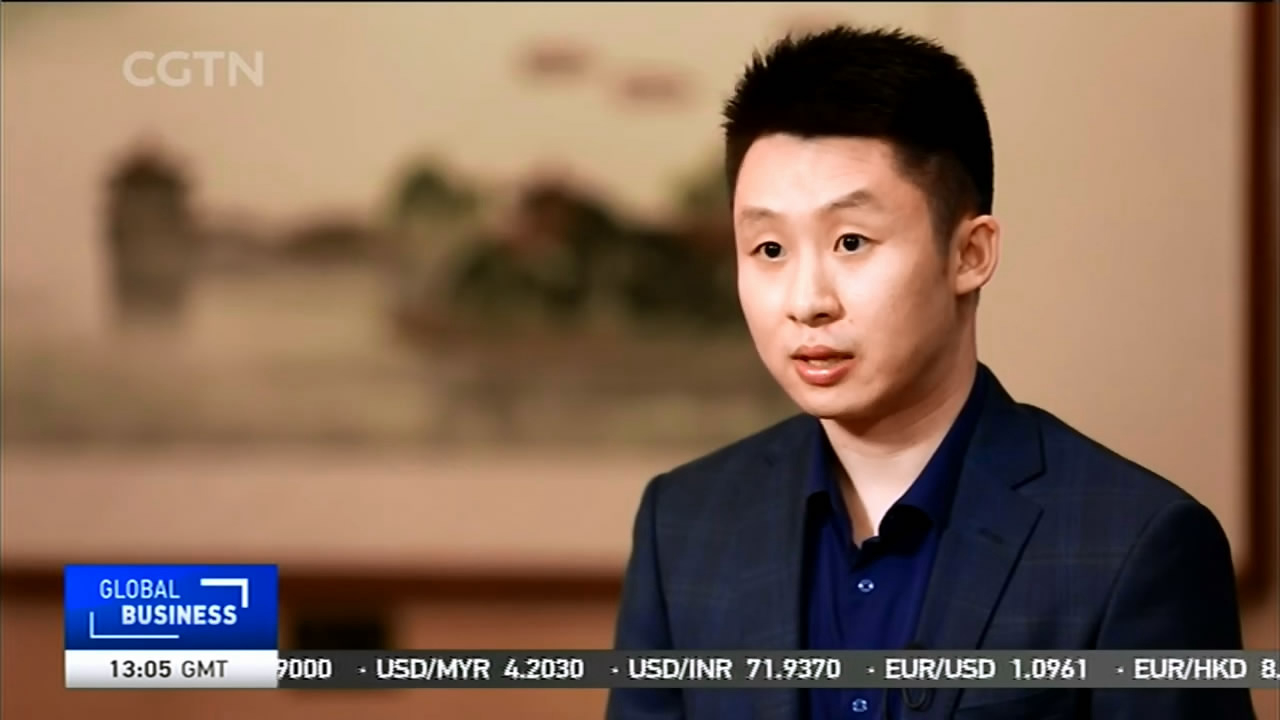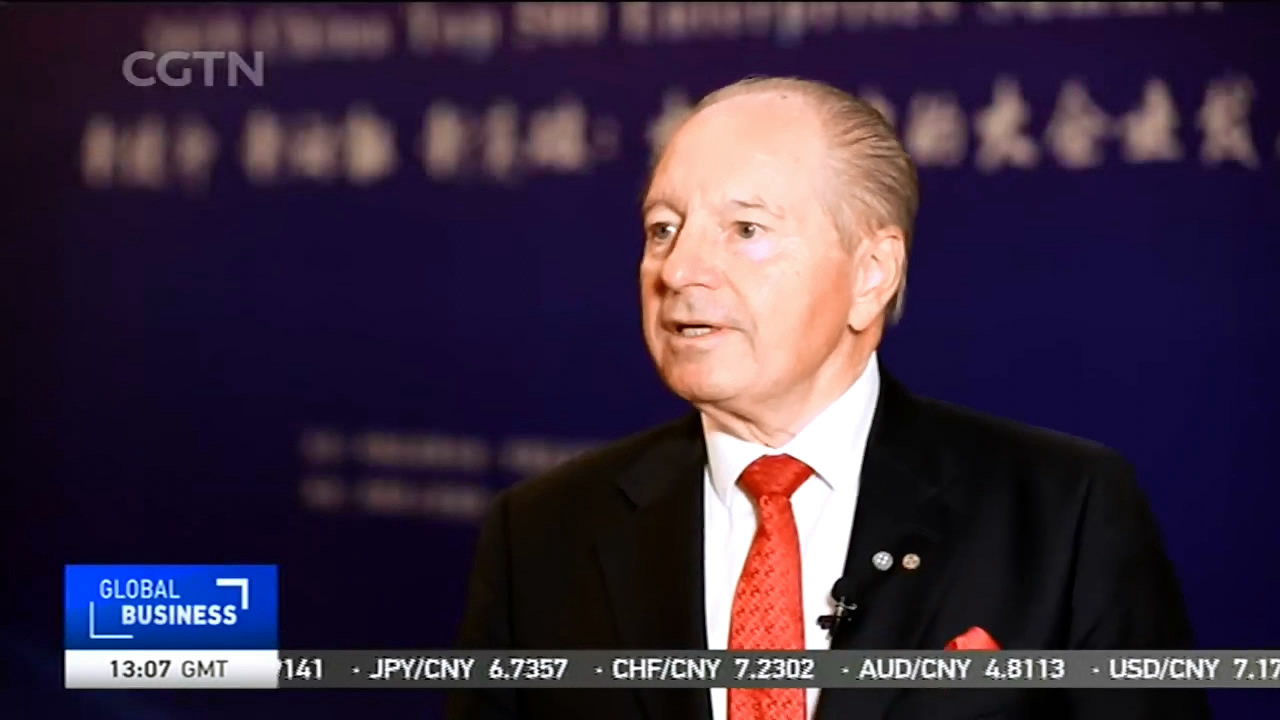

New breakthroughs in a time of great change is the general theme at the China top 500 enterprises summit. This year's summit was held in Jinan, a city in Shandong Province known as a stronghold of the state economy and one that's struggling to transform itself.
The ranking itself is never a big surprise, China's state behemoths in energy, infrastructure and banking top the list.
Total revenues and profits show robust growth. According to China Enterprises Confederation, total sales stood at 79.1 trillion yuan (about 11 trillion U.S. dollars), up 12.41 percent from a year ago, and the total profits were about 3.53 trillion yuan (490 billion U.S. dollars), increasing 10.3 percent.
In a nod to China's shift in direction, this year's ranking includes a new category – strategic and emerging industries. Revenues from emerging new industries now make up over a third of companies' total.
As the government steps up spending on programs like smart cities, even smaller companies like Instai Education are riding the wave.
"Smart education is one of the key components of smart city. And with current AI technology, we can connect smart education with all other components in the smart city construction." explained Instai Education & Technology's CEO Gary Huang.

Gary Huang, Instai Education & Technology's CEO. /CGTN Photo
Huang gave an example. "We can connect smart education with smart healthcare, which says if there are many schools with students absent from certain disease, the platform would then analyze data and help notify the smart healthcare system, and then the government can take preemptive actions to prevent this disease from spreading."
Two hundred and thirty-five private companies made it onto China's 2019 top 500, two less than 2018. This is the first time in recent years the number of private companies on the list has fallen.
Tongding Group, a leading private company in fiber optic communications, says the trade war has hurt its overseas business.
Chairman of Tongding Group, Shen Xiaoping told CGTN that about a quarter of the company's exports were affected by the trade war. "So we have to reinforce our domestic markets, as well as explore more overseas markets," Shen said.
Tongding and its peers hope China's 5G roll out can offset the downsides.
"5G is giving the telecom industry challenges and opportunities – sales are growing but profits are declining. We are investing a lot in big data cybersecurity, I believe, as long as we are bold and open, we will get through challenges," said Shen.

Vitalijs Gavrilovs, president of the Employers' Confederation of Latvia, speaks with CGTN. /CGTN Photo
New partnerships in new geographies are another way of carving out growth. This was the first time the summit held a China-Latvia business round table. A recent example of a Latvian investment in a Chinese dairy joint venture is a sign of more cooperation to come – in aviation, railway and port, according to Vitalijs Gavrilovs, president of the Employers' Confederation of Latvia.
He considers BRI a "unique project around the world," revealing that businessmen from both countries have talked about possible concrete project during this year’s summit. "And interests from both sides are quite big," he said.
China's property giant Greenland Group also sees business potential along the Belt and Road Initiative. Its chairman, Zhang Yuliang, highlighted not only infrastructure projects, but also tourism and consumer businesses.
"We're developing infrastructure projects along the Belt and Road, plus we're discussing equity deals with global hotel management companies, and working with travel companies, as well as importing goods to satisfy the growing needs of Chinese consumers," Zhang detailed.
While diversification and domestic focus help Chinese companies hedge against current uncertainties, longer term resilience would require committed R&D input, an area where China's top 500 still lags behind its U.S. peers.

Copyright © 2018 CGTN. Beijing ICP prepared NO.16065310-3
Copyright © 2018 CGTN. Beijing ICP prepared NO.16065310-3